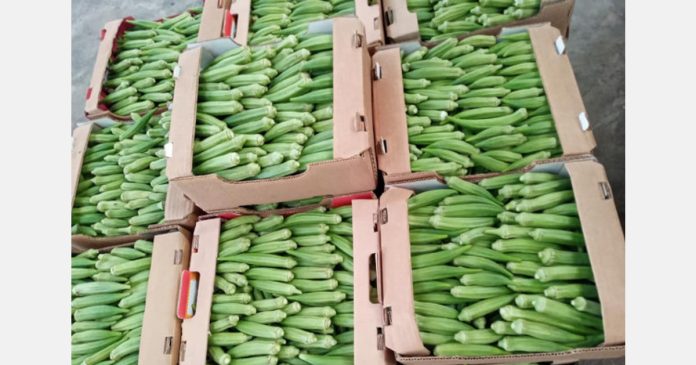Paul Otieno, a farmer from Bamgot in Kisumu County, can attest that the secret to profitable okra farming is value addition.
For over a decade, the farmer has been producing over 12 tonnes of Okra on his 1.5-acre farm, part of which is exported to South Sudan.
His entry to the South Sudanese market came by chance in 2019 when he met some south Sudanese students at the Jubilee Market in Kisumu.
The then students at Great Lakes University of Kisumu were purchasing Okra to trade back home and strike a business deal with Otieno, which has since transformed his life.
The students agreed to purchase produce from Otieno’s farm directly and made payment upfront, including transport costs for the Okra to South Sudan.
“At first, they offered to give me Sh100 per kilo, Sh20 more than what Kisumu traders offered. However, when the okra business continued growing for them in South Sudan, they decided to offer me Sh300 per kilo, and that marked the beginning of my fortunes in agribusiness,” he says.
Otieno would then start exporting up to 300 kilos of Okra per week before getting the value addition idea.
Joyce Njoki: Why I quit my waitress job for lucrative Okra farming
“They advised me to harvest the vegetable, cut them into rounded pieces, dry them in the sun before taking them to a posho mill for grinding into powder form, which would then be packed and transported as a parcel to South Sudan,” he says.
After drying, Otieno picks moringa tree leaves, cuts them into pieces, and dry them too. The dried leaves are mixed with okra to make them easy to mill into flour, which is used in making chapatis.
He notes that 150 kilos of fresh okra can produce about three kilos of okra flour. From his farm, Otieno harvests 950 kilos a week, out of which 300 kilos are turned into flour for export at Sh300 per kilo.
He also supplies 300 kilos (6kg okra flour) at Sh300 each to another restaurant in Kisumu that is owned by the students, and 50 kilos of fresh okra to Kisumu’s Jubilee Market at Sh80 per kilo.
This translates to a weekly income of Sh184,000 and Sh736,000 a month. He explains that the harvesting period of okra lasts for three months, meaning he pockets about Sh2.2 million per season.









